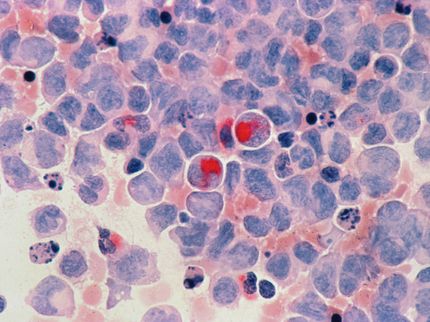Genzyme’s Mozobil Shows Promise in Chemosensitization
Advertisement
Genzyme Corporation announced that a Phase 1/2 trial provided early clinical data suggesting that Mozobil® (plerixafor injection) in combination with chemotherapy may offer a therapeutic impact on leukemic cells protected in bone marrow. The investigational trial, partially supported by Genzyme, was the subject of an oral presentation at the 2009 annual meeting of the American Society of hematology in New Orleans, LA. Genzyme has initiated two clinical trials to further explore this potential new strategy to attack blood cancers.
“If we can begin to impact leukemic cells protected in bone marrow, we may be able to reduce residual disease and therefore provide better potential outcomes for patients,” said John F. DiPersio, M.D., Ph.D., professor, Washington University, St. Louis, the senior author of the study that was presented at ASH. “Our initial work in humans has produced some encouraging results.”
In the clinical trial, study director Geoffrey Uy, M.D. and colleagues from Washington University School of Medicine gave Mozobil as a pre-conditioning strategy prior to chemotherapy in forty patients with relapsed or refractory acute myeloid leukemia (AML). Many of the trial participants were either unresponsive to, or had short remissions, following prior treatments. The patients were given Mozobil, and four hours later received the AML combination chemotherapy regimen mitoxantrone, etoposide, and cytarabine (MEC). The Mozobil plus MEC regimen was repeated daily for five days, following the standard MEC treatment protocol.
Of the 32 patients available for the first follow-up evaluation, researchers observed a complete remission (CR or CRi) in 50 percent of patients. Thirteen of these patients had a CR with normal platelet recovery, and three patients had complete remission with incomplete platelet recovery (CRi). In a larger patient population, Washington University’s historical CR and CRi rate in relapsed and refractory AML patients receiving MEC alone ranges from 25 to 35 percent.
The study, developed primarily to determine optimal dosing and safety of Mozobil as a tumor sensitization agent, found no evidence of hyperleukocytosis, excessive release of white blood cells into the bloodstream. There was also no observed delay in the recovery of neutrophils or platelets important to immune system protection and prevention of bleeding, respectively. Treatment failure was considered to be due to persistent disease in 14 patients (44 percent) and death during aplasia (not producing enough new blood cells) in two patients (6 percent). Grade three or higher adverse events consisted primarily of cytopenias and infections, commonly seen in patients treated with the MEC combination alone.





















































